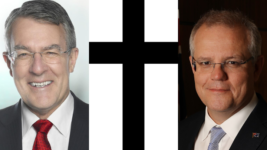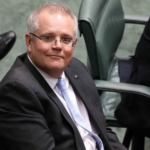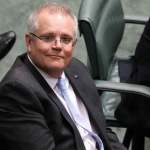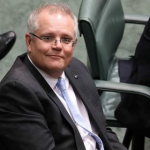Religious Freedoms Revisited: Attorney-General to Spruik Discrimination Laws for Those of Faith

As the next round of federal parliament kicks off in weeks, it’s expected that attorney general Mark Dreyfus is set to reignite the debate around religious discrimination laws, and the prejudicial measures that serve to discriminate against LGBTIQ persons in relation to religious schools.
This will coincide with the release of the Australian Law Reform Commission’s review of federal law regarding to religious educational institutions, including those in the Sex Discrimination Act 1984 (Cth), to ensure LGBTIQ students and teachers aren’t prejudiced.
Dreyfus tasked the ALRC with the inquiry in November 2022, and noted in its terms of reference, that the commission “should also have regard to the government’s commitment to introduce legislation to… prohibit discrimination on the basis of religious belief or activity”.
In having committed to new religious discrimination laws, Dreyfus is continuing the drive begun by his Coalition predecessors with then PM Scott Morrison staring over their shoulders, which were bills that were criticised for attempting to raise religious faith above all other protected attributes.
And one of the five Liberal MPs that crossed the floor on this issue, and, ultimately, caused their party leader’s years-long religious freedoms campaign to self-destruct, recently told the Herald that she doesn’t want this renewed push for religious protections to regress into more culture wars.
Prejudicial discrimination law
Floor crossing Liberal MP Bridget Archer and Andrew Bragg, a Liberal Senator who threatened to cross, raised the matter early this year, as they reiterated the position, they both put to Morrison: if religious discrimination laws are going to be passed, discriminatory school laws must be revoked.
Section 38 of the Sex Discrimination Act contains provisions allowing religious educational institutions to discriminate against employees, contractors and students based on “sex, sexual orientation, gender identity, marital or relationship status or pregnancy”.
These laws had been sitting quietly on the books, unnoticed for the most part, while also serving to see openly LGBTIQ teachers sacked. And while documented cases involving students are rare, a Brisbane Christian college stipulated it reserves its right to expel on such grounds in early 2022.
The religious freedoms debate in this country began as the campaign for marriage equality picked up. Spurred by the Christian Right, this counternarrative claimed those of faith were under attack, and PM Malcolm Turnbull commissioned ex-AG Philip Ruddock to inquire into the matter.
And it was the leaking the Ruddock recommendations in late 2018 that brought widespread attention to the section 38 laws and resulted in strong calls for their immediate repeal, which was followed by a weak promise to revoke the law relating to students, which was then forgotten.
A sword and not a shield
A floor crosser from 2022, Archer this month stated that she supports legislated protections for people of faith, but she doesn’t want an upcoming debate to again spiral into “identity politics, culture wars and moral panics”, which her party is notorious for provoking in office.
Antidiscrimination law experts agree that Australian discrimination laws lack protections for the attribute of faith and such protections are warranted. Yet, some have also noted that certain measures that had been proposed would provide the religious with the right to discriminate.
The original draft of the Religious Discrimination Bill 2019 contained a rule that would have allowed health workers to refuse services when conflicting with their faith. Not appearing in the final draft, this could have seen abortions or hormone therapies denied or simply the provision of all services.
There were other extreme measures proposed and then dropped, which left provisions remaining in the bill that acted more like liberties than protections, while the final debate that saw it shelved was due to Morrison agreeing to ban schools from expelling gay students but not transgender pupils.
Indeed, the legislation that managed to just pass through one house continued to have laws that allowed religious educational institutions to discriminate against LGBTIQ people and women in general, including due to their being pregnant or cohabitation out of wedlock.
Ailing secularism
Then treasurer Scott Morrison first spruiked religious discrimination laws in December 2017. And the soon-to-be prime minister suggested that Christians in the community are being persecuted, which was a theme that runs back to his 2008 maiden speech in parliament.
However, Morrison’s suggestion came just two weeks after federal parliament had passed same-sex marriage laws, and a week after then PM Turnbull released the terms of reference for the Ruddock religious freedoms review, which was an obvious concession to the Christian Right post enactment.
The same political forces behind the push for religious freedoms laws dressed up as antidiscrimination measures are behind the annual Church and State summit, which tends to attract Coalition MPs and voters, as well as extremist Christians, who are interested in shaping politics.
The South Australian Liberals terminated the membership of 150 Pentecostal Christians only recently joined in mid-2021 and asked a further 400 new members to show cause as to why they shouldn’t be dropped from the branch of 5,000 members, as it appeared an obvious infiltration.
This sort of evangelical politicking hasn’t been as distinct with Labor in the past, so whilst the party has suggested it will continue the push for protections for both those of faith and LGBTIQ people, there seems to be no reason to consider it would progress laws that privilege the religious.
However, Labor has been concerned about losing the religious vote in western Sydney, which used to be its stronghold. And this was evidenced with the parachuting of Kristina Keneally into the seat of Fowler as a sure thing for the 2022 election, only to see independent Dai Le voted into office.
Of course, while Labor may be looking to shore up the religious vote, there’s no reason for it to do a complete about-face and mimic the Coalition, that’s unless one considers the enthusiasm with which the Albanese government has embraced AUKUS, Israel’s self-defence and the bombing of Yemen.







